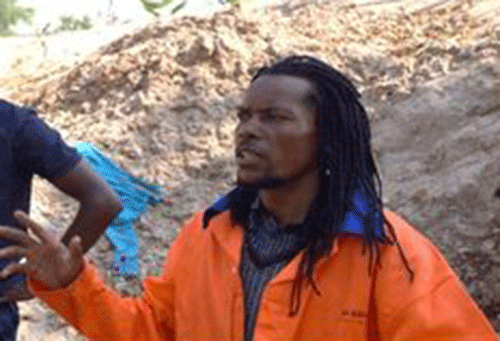JOSHUA Hakapandi, a youthful and passion driven full-time communal farmer in the Etayi constituency, established his vegetable garden in 2021 in the Okambebe area of the Omusati region.
He currently grows tomatoes, spinach, chillies, carrots, onions, sweet potatoes, strawberries, granadilla, pomegranate, and guava, and has some banana trees.
Hakapandi is not only an ambitious horticulturist, but he also has cattle and goats which he maintains with by-products from the garden and pods from the Vachellia erioloba tree. This project helps him feed his siblings, as he is the eldest child in the family.
Hakapandi said the Agribank Women and Youth Training funded by the Deutsche Gesellschaft fur Internationale Zusammenarbeit’s (GIZ) Farming for Resilience project (F4R) held in Etayi motivated him to start crop and fodder production.
He remembers how the training taught him methods of planting, mulching, pruning, making compost, transplanting, fertilising, and planting trees. He also learned to boil neem tree leaves to spray onto crops as a pesticide and to use crop residues as feed for livestock.
As with every farmer in the arid to semi-arid Namibia, Hakapandi faces challenges with water for the garden, and even though he buys it from NamWater, it is expensive and he finds it unaffordable. To ease the high-water costs, Hakapandi has dug a well from which to water the garden but stated that it takes about a week for the well to recharge.
He also operates another garden in Epalela with a friend where he grows cabbages, pumpkins, tomatoes, and other crops.
Hakapandi says he wants to expand his garden and have his own reliable water source such as a borehole and fencing infrastructure.
Hakapandi’s passion and drive for agriculture, self-sufficiency, and growth are astounding and inspiring.
He says he is the main provider of tomatoes and spinach in the Okambebe area and supplies locals at household level and open markets.
The income he makes provides for his family which consists of 14 siblings and relatives. He urged youths to take it upon themselves to produce food for their sustenance and for the nation.
– Agribank


